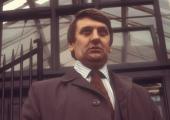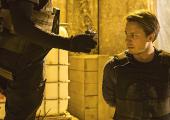Hidden, Series Finale, BBC Four review - a whydunnit, not a whodunnit



Forty years on. You could have got attractive odds on Duran Duran still being here when, on a yacht carving the seas off Antigua, a cream-suited Simon Le Bon mimed “Rio” astride an unapologetically phallic bowsprit. “A ripple in a stagnant pool,” sniffed the NME upon first catching them live. But that was then and this is now and four of the original five, having spent many years as a three, are still at it, 14 albums down.

Nordic shmordic. Why travel to Scandinavia to get your dark, disturbing mysteries when you can find them in Wales? You even get subtitles for an extra frisson of otherness.

BBC Four is the TV music equivalent of those oldsters music mags like Q and Mojo. Have there been five, or is it six, documentaries about Queen on the channel?

As the ice hardened in the Cold War of the mid-1950s, and the USSR mocked the USA for both its supposed barbarism and racial segregation, the representative from Harlem, Adam Clayton Powell Jr, had a bright idea. Instead of competing in the cultural heats of the Cold War on Soviet strengths of classical music and ballet, why not bring the world that quintessentially, originally American art form, jazz?

As Aerosmith’s guitarist Joe Perry put it, “there’s a certain amount of fuck you-ness in everything Jeff does.” Perhaps it’s this which has allowed Jeff Beck to achieve the rare feat of surviving into his seventies as what you might describe as a guitar legend without portfolio.

In the late 1970s the British establishment sustained a bloody nose. Roland Huntford published his debunking of Captain Scott and Anthony Blunt was outed as the Fourth Man, while the Old Etonian Liberal party leader Jeremy Thorpe was tried for conspiracy to murder.

The title signalled what was coming so clearly, it may as well have been called When Bands End Badly: the two camps, the arguments and sniping and the eventual collapse of Culture Club’s US and UK tour to promote an album of new material. It’s hardly a surprise though – this is a band that, history shows, would have benefitted from the visible presence of an armed UN peacekeeping force.

In the previous couple of episodes, some light began to seep into the subterranean gloom of the Copenhagen kidnappers, or at any rate onto their identities and motivations. The military theme with which Below the Surface opened, with Philip Norgaard (Johannes Lassen) being battered to a pulp by his captors somewhere in the Middle East, was proving to be the key to the mystery, as Norgaard himself suspected from early on.
